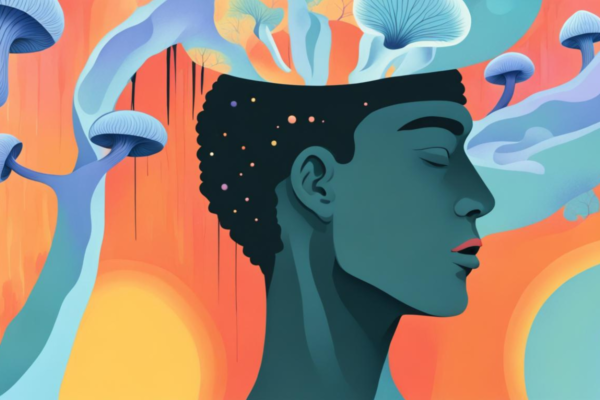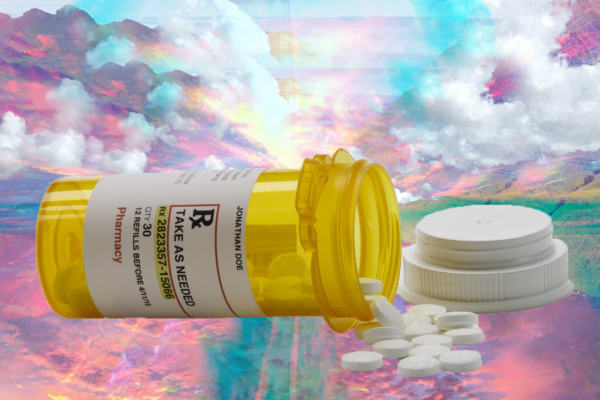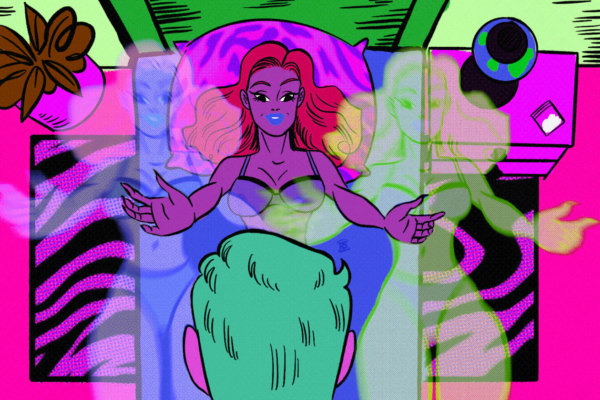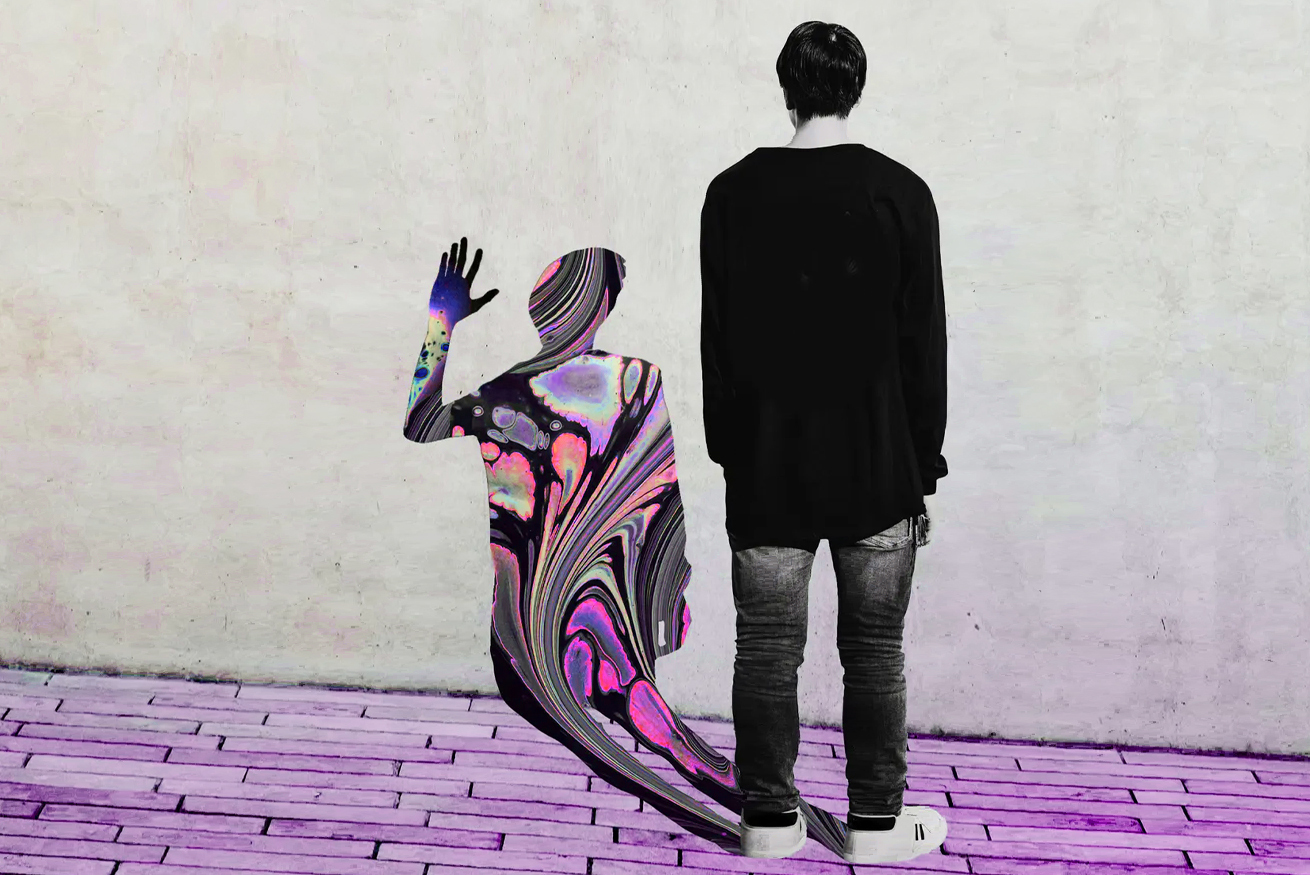
One of the oldest, and most popular, concerns about psychedelics is whether they can cause psychosis or schizophrenia. Throughout time, there have been stories shared about people losing their minds while on an LSD trip or how they never recovered from a trip. Some of the most common questions I get asked by people when I mention I studied and consume psychedelics are often “aren’t you afraid you’ll one day never come back from a trip?” and “but don’t they make you crazy?”
It’s interesting seeing how many people still believe there is a link between psychedelic use and prolonged psychosis, but it’s hard to blame them. Most of the knowledge people had about psychedelics before 2018, when research began to ramp up again, was by word of mouth and portrayals in media. People have unknowingly spread misinformation regarding the negative effects of psychedelics because that was all they have known and heard from the media and friends. The rise of societal misinformation was partly why psychedelics became so stigmatized and feared, with a lot of this being able to be traced back to government-backed anti-drug campaigns that continued to foster stigmatization.
Now, with the return of psychedelics in the mainstream and their adoption as novel treatments for mental health conditions, it is time to set the facts straight by using the research that exists. This article aims to answer the question of whether psychedelics can cause prolonged psychosis or lead to the development of psychotic disorders like schizophrenia. By first understanding what psychosis is, contextualizing it inside the psychedelic experience, and highlighting the scientific research that exists, we can begin to better understand the relationship between psychedelics and psychosis.
Understanding Psychosis: Symptoms and Criteria

First off, when discussing drug-induced psychosis, it is important to distinguish between psychosis and schizophrenia. Whenever people ask about psychedelics’ role in causing either, they tend to use the words interchangeably. This is not the case. According to the National Institute of Mental Health, psychosis refers to “a collection of symptoms that affect the mind, where there has been some loss of contact with reality. During an episode of psychosis, a person’s thoughts and perceptions are disrupted and they may have difficulty recognizing what is real and what is not.”
As opposed to schizophrenia, which is a specific disorder. In order for psychosis to become part of a mental health diagnosis, like schizophrenia, certain criteria need to be met. For psychosis to be considered schizophrenia, the DSM-5-TR, which is the standard classification of mental health disorders, says that a patient must have two or more symptoms for a significant amount of time during a 1-month period, with said signs being present for at least 6 months. One of the symptoms must be delusions, hallucinations, and/or disorganized speech.
With that being said, let’s understand how people can develop psychosis. Psychosis is not caused by a single factor but rather a combination of genetic risk, differences in brain development, and exposure to stressors or trauma. It can be a symptom of mental illnesses like schizophrenia, bipolar disorder, or severe depression. However, a person can experience psychosis without being diagnosed with any mental illness, too. Psychosis in older adults can also be a symptom of physical or mental illnesses that emerge later in life, such as Parkinson’s disease or Alzheimer’s disease. Other causes of psychosis include sleep deprivation, certain prescription medications, and substance misuse. A qualified mental health professional can provide an accurate diagnosis after excluding other causes. Needless to say, psychosis is a complex set of symptoms that can be brought on by a multitude of things. Now, let’s contextualize psychosis within psychedelics.
Contextualizing Psychosis Within the Psychedelic Experience
Psychedelics can cause psychosis while a person is tripping, as reality can start becoming hard to discern. Psychedelics, such as LSD and psilocybin, can cause transient psychosis in some individuals. This type of drug-induced psychosis is usually characterized by hallucinations, delusions, and disorganized thinking. These symptoms can be very similar to those seen in individuals with schizophrenia, but these effects are bound to the trip duration and do not cause people to enter a persisting psychotic episode once the trip ends.
Yes, many times a psychedelic will make users feel detached from reality and experience schizophrenic symptoms, but this is a part of the psychedelic experience. A person who does not know this and experiences this for the first time is going to erroneously believe that psychedelics can and do cause schizophrenia, thus it is of upmost importance that anyone wanting to take psychedelics do their research before and understand what the experience will entail. People who take psychedelics without proper set and setting or are misinformed in the drugs’ effects may have unfavorable experiences that causes them to miscategorized their experiences with these drugs.
Psychosis during a trip can be very disorienting and, at times, frightening, so anyone wanting to experiment with psychedelics must know this can be a possibility. A trip can easily become a “bad trip” when people are not ready to experience this state of psychosis, so to alleviate the stress that occurs they should remind themselves that they took a mind-altering substance and that everything will be fine once the trip ends. Having the support of an experienced trip sitter or trusted loved one can help make disorienting experiences like this more manageable and prevent them from becoming overwhelming. Outside of the psychosis that can be experienced during a trip, there is no link between psychedelic use and persisting psychosis.
What the Science Says: Dispelling Myths About Psychedelics and Psychosis
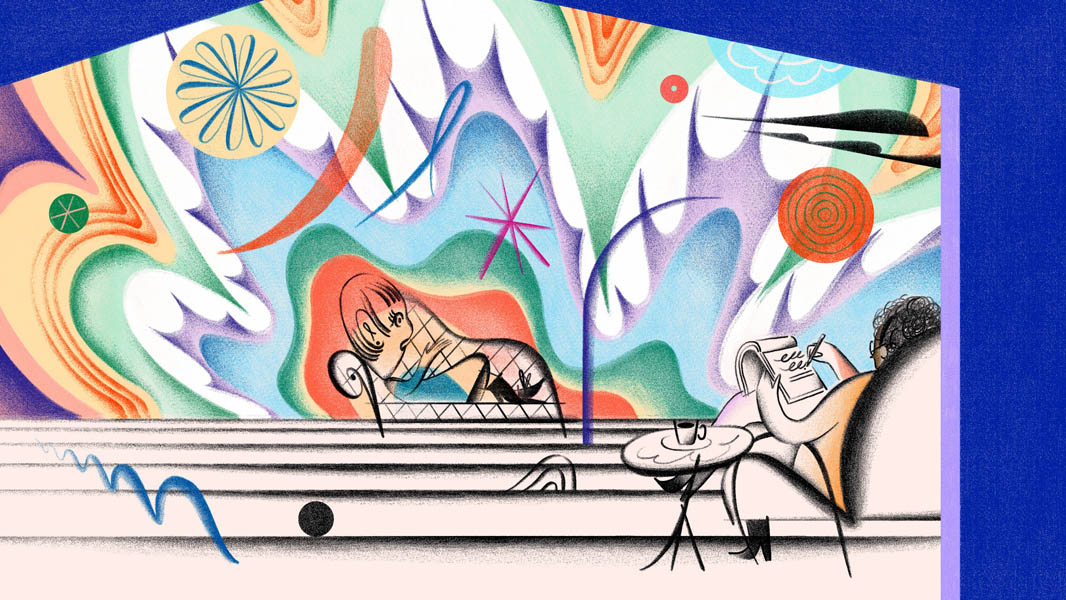
In a 2015 paper published in the Journal of Psychopharmacology, researchers conducted a large population study of 130,000 adults in the United States and failed to find evidence for a link between psychedelic use and psychosis. The researchers found that individuals who reported taking psychedelic drugs (psilocybin, LSD, and mescaline) were not at increased risk of developing 11 indicators of mental-health problems such as schizophrenia, psychosis, depression, anxiety disorders and suicide attempts. They also noted that serious adverse events involving psychedelics are extremely rare.
A second paper also published in the Journal of Psychopharmacology highlighted broader results regarding psychedelics’ effects on mental health. In this paper, researchers also found that lifetime classic psychedelic use was not associated with any adverse mental health effects. Psychedelic use also significantly reduced odds of past month psychological distress, past year suicidal thinking, past year suicidal planning, and past year suicide attempt, whereas lifetime use of other illicit drugs increased the likelihood of all of these.
A paper published in Biological Psychiatry studied the long-term residual psychological and cognitive effects of long-term peyote use among Native Americans, who ingest this psychedelic cactus for religious and healing purposes. The study found no evidence of psychological or cognitive deficits among Native Americans who regularly used peyote. According to the authors, the results should be kept in the context of these testing parameters, but it shows how one community involved in long-term use of a psychedelic had no detrimental effects on their mental health.
For people without a history of severe mental illness or psychotic disorders, research has shown no indication that psychedelics will cause them to develop prolonged psychotic symptoms or develop schizophrenia. On the other hand, the risk of developing drug-induced psychosis may be greater for individuals who have a history of mental illness or who have a family history of psychotic disorders. It is often advised that people with a family history of psychotic disorders abstain from trying psychedelics, even if they have not presented symptoms or have been formally diagnosed, as this may trigger an episode. People who fall in this category should speak with a licensed mental health provider, preferably one experienced with psychedelics, to assess their risk.
Other Potential Risks and Safety Precautions

While psychedelics are considered generally safe, professionals have warned that this does not mean psychedelics are free of any adverse effects. Charles Grob, a pediatric psychiatrist at the University of California and proponent for the use of psychedelics to treat mental health disorders, mentions that adverse effects can and do occur. The main adverse effect that he warns about is hallucinogen persisting perception disorder (HPPD). HPPD is a rare clinical condition in which patients who have had previous exposure to a hallucinogenic substance continue to experience perceptual distortions months to years after complete cessation of the initial substance use. This is sometimes misconstrued by the general populace to equate with “not leaving the trip” and thus experiencing prolonged psychotic symptoms; psychosis and HPPD are not to be conflated.
Another possible risk when dealing with psychedelics is the possibility of adulterated product. Mushrooms are generally not adulterated, and can easily be identified if they are psychedelic or not, but drugs like LSD can often be adulterated with other substances. Drugs like 25I-NBOMe is one of the most common, and dangerous, LSD adulterants. While LSD is safe, NBOMe is dangerous. This drug is cheaper to manufacture than LSD, so it is often used to replace it, but it carries significant more risk. NBOMe has been reported to cause tachycardia, hypertension, cardiac ischemia, ataxia, facial droop, executive dysfunction, and, commonly, serotonin syndrome. While it is nearly impossible to overdose on LSD, NBOMe has been impliciated in multiple deaths worldwide with at least one suicide and two attempted suicides occurring while under its effects. The fear surrounding psychedelics, many times tied to LSD, are often caused by the effects that adulterants like NBOMe cause to unsuspecting people, which grow to believe LSD was the culprit. It is important to always test your drugs using a reagent kit before consuming. Never consume a psychedelic whose identity is not verifiable. Doing so increases the risk of physical and mental adverse effects.
Destigmatizing Psychedelics and Psychosis: A Call for Evidence-Based Education
Most of the fear surrounding how psychedelics affect our brains can be tied to decades of hyperbolized accounts, misinformation, and misattributions that created unwarranted stigma. Most, if not all, of this can be tied back to Nixon’s declaration of the War on Drugs. After decades of no academic psychedelic research occurring, stories about people losing their minds, committing suicide, or committing violent murders while on psychedelics became overblown and filled with misconceptions and misattributions. The data and research have shown that, throughout time, society severely overstated the negative effects of psychedelics on our mental health. As we continue navigating through this psychedelic renaissance, addressing the misconceptions people have about psychedelics will help us destigmatize them and help make this space clearer and more accessible for people who are beginning to learn about them.
